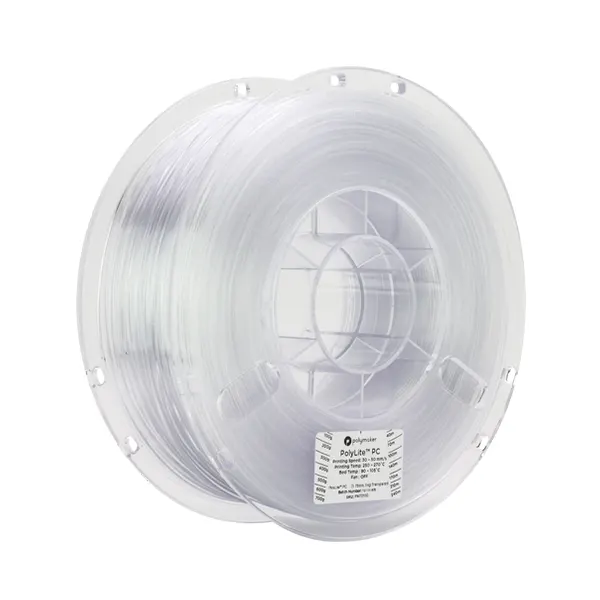Polymaker Polylite PC 1kg

PolyLite™ is a family of 3D printing filaments made with the best raw materials to deliver exceptional quality and reliability. PolyLite™ covers the most popular 3D printing materials to meet your everyday needs in design and prototyping.
₱1,649.00
Polymaker PolyLite™ PC Filament
PolyLite™ is a family of 3D printing filaments made with the best raw materials to deliver exceptional quality and reliability. PolyLite™ covers the most popular 3D printing materials to meet your everyday needs in design and prototyping.
PolyLite™ PC is produced using a polycarbonate resin specifically engineered for 3D printing. It delivers good stiffness and heat resistance with light diffusing properties.
Printing Properties:
- Nozzle Temperature:
250˚C – 270˚C - Printing Speed:
30mm/s – 50mm/s - Bed Temperature:
90˚C – 105˚C - Bed Surface:
MAGIGOO PC
BUILDTAK - Cooling Fan:
OFF
*Printing conditions may vary with different printers and nozzle diameters
Mechanical Properties:
- Young’s Modulus:
2307 ± 60 Mpa - Tensile Strength:
62.7 ± 1.3 Mpa - Bending Strength:
100.4 ± 2.7 Mpa - Charpy Impact Strength:
3.4 ± 0.1 kJ/m2
Thermal Properties:
- Glass Transition Temperature:
113˚C - Vicat Softening Temperature:
119˚C - Melting Temperature:
N/A
Notes:
- Drying Settings:
80˚C for 8h - Recommended Support Materials:
PolySupport
Other:
When printing with PolyLite™ PC it is recommended to use an enclosure. For large part it is recommended to use a heated chamber.
It is recommended to anneal the printed part right after the printing process to release the residual internal stress.
Annealing settings: 100˚C for 2h
TDS:
SDS:
PIS:


